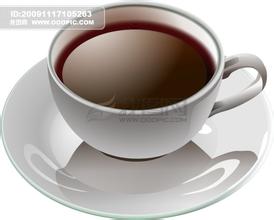Introduction of Ethiopian Yejasuefei Coffee Bean washed G2 Flavor Variety Manor
Introduction of Yejia Xuefei washing G1
Yega Xuefei lemon flower is a washed G2 Yejasuefi with stable quality, excellent flavor and high performance and price among many Yejiaxuefei items. its raw bean defect rate is less than 1%, and it has a spice-like taste in the raw bean stage. after baking, it shows its most admired aroma of lemon, jasmine and honey, and has bright and beautiful fruit acidity in the taste, making the taste more colorful. The law of washing makes the flavor clean and clear, which can brighten people's eyes at the first bite! There are strong floral and citrus lemon fruit aromas under our medium roasting, with a honey-like sweetness and aroma in the finish, making people feel like drinking juice and forgetting a cup of coffee.
The most acclaimed fruit coffee in the coffee world-Yega Xuefei lemon blossoms
The Yega Chuefei in the baking pot has a thicker mellowness than the general Yega. Its strong lemon aroma and sweet sweetness will really make people feel happy.
As we hope to show its beautiful flavor, the retention of fruit acid will be more obvious. It is recommended that the ratio of bean quantity to liquid quantity is about 10g:150~180ml. At lower concentration, the fruit acid will be softer and more palatable, and you will feel its charm more.
At present, Ethiopia's coffee grading and quality control system mainly has two indicators: visual inspection and cup evaluation, including the color, cleanliness, origin, taste and characteristics of coffee beans. The export rating is marked by simple numbers, with the best washed coffee at level 5 and the best sun-cured coffee at level 4. After grading, mark the place of origin and then export. Exports are usually paid by letter of credit, which can not only reduce the risk of foreign exchange collection for exporters, but also give quality assurance to importers.
According to the law, all coffee is sold through an auction held by Addis and DiRedawa. During the coffee harvest, such auctions are even held twice a day.
The export of coffee
Coffee is Ethiopia's most important export cash crop and the main source of Ethiopia's foreign exchange earnings. Ethiopia's coffee exports account for about 3% of the world market, making it the eighth largest coffee exporter in the world. Coffee exports increased steadily from 58000 tons in 1990 to 110000 tons in 1995-1996 and remained at this level in the following years. The export volume exceeded 110000 tons from 2001 to 2002 and reached 127000 tons from 2002 to 2003. As the price of coffee on the international market has been declining for a decade, Ethiopia's foreign exchange earnings have been seriously affected. Before the sharp drop in coffee prices, coffee exports accounted for more than half of Ethiopia's foreign exchange earnings, but now they account for only about 35 per cent. But according to the International Coffee Organization, coffee prices rebounded in 2002, rising from 41 cents per pound in September 2001 to 52 cents per pound in 2002 and 59.7 cents per pound in 2003. The average price in March 2004 was 60.8 cents per pound, an increase of 50% over September 2001. This is excellent news for Ethiopia.


Important Notice :
前街咖啡 FrontStreet Coffee has moved to new addredd:
FrontStreet Coffee Address: 315,Donghua East Road,GuangZhou
Tel:020 38364473
- Prev

Introduction to the characteristics of Manor Flavor Grinding scale of Bourbon Coffee beans
Boutique coffee bean bourbon "Bourbon" bourbon is an ancient and excellent variety juxtaposed with iron pickup, and some botanists believe that bourbon is an early variety of iron pickup transplanted to Yemen. Bourbon is almost all round beans, beans are a little smaller than tin card, ripening later, but the yield is 30% more than tin card. It is suitable for planting above 1200 meters above sea level, and its flavor is obviously more prominent than those below 1000 meters.
- Next

What is the best match for Burundian coffee beans? it tastes better with those varieties of coffee
Burundian coffee bean flavor grinding taste French filter kettle, plug air, drip filter or mocha pot do not require high fineness of coffee powder. Knife milk grinder (commonly known as chopping bean machine or propeller bean grinder) can not adjust the scale, but to adjust the size of coffee powder according to the length of time, the particle size of coffee powder is uneven, so it is not suitable for making espresso. It is generally believed that as long as there is an espresso machine
Related
- Detailed explanation of Jadeite planting Land in Panamanian Jadeite Manor introduction to the grading system of Jadeite competitive bidding, Red bid, Green bid and Rose Summer
- Story of Coffee planting in Brenka region of Costa Rica Stonehenge Manor anaerobic heavy honey treatment of flavor mouth
- What's on the barrel of Blue Mountain Coffee beans?
- Can American coffee also pull flowers? How to use hot American style to pull out a good-looking pattern?
- Can you make a cold extract with coffee beans? What is the right proportion for cold-extracted coffee formula?
- Indonesian PWN Gold Mandrine Coffee Origin Features Flavor How to Chong? Mandolin coffee is American.
- A brief introduction to the flavor characteristics of Brazilian yellow bourbon coffee beans
- What is the effect of different water quality on the flavor of cold-extracted coffee? What kind of water is best for brewing coffee?
- Why do you think of Rose Summer whenever you mention Panamanian coffee?
- Introduction to the characteristics of authentic blue mountain coffee bean producing areas? What is the CIB Coffee Authority in Jamaica?

